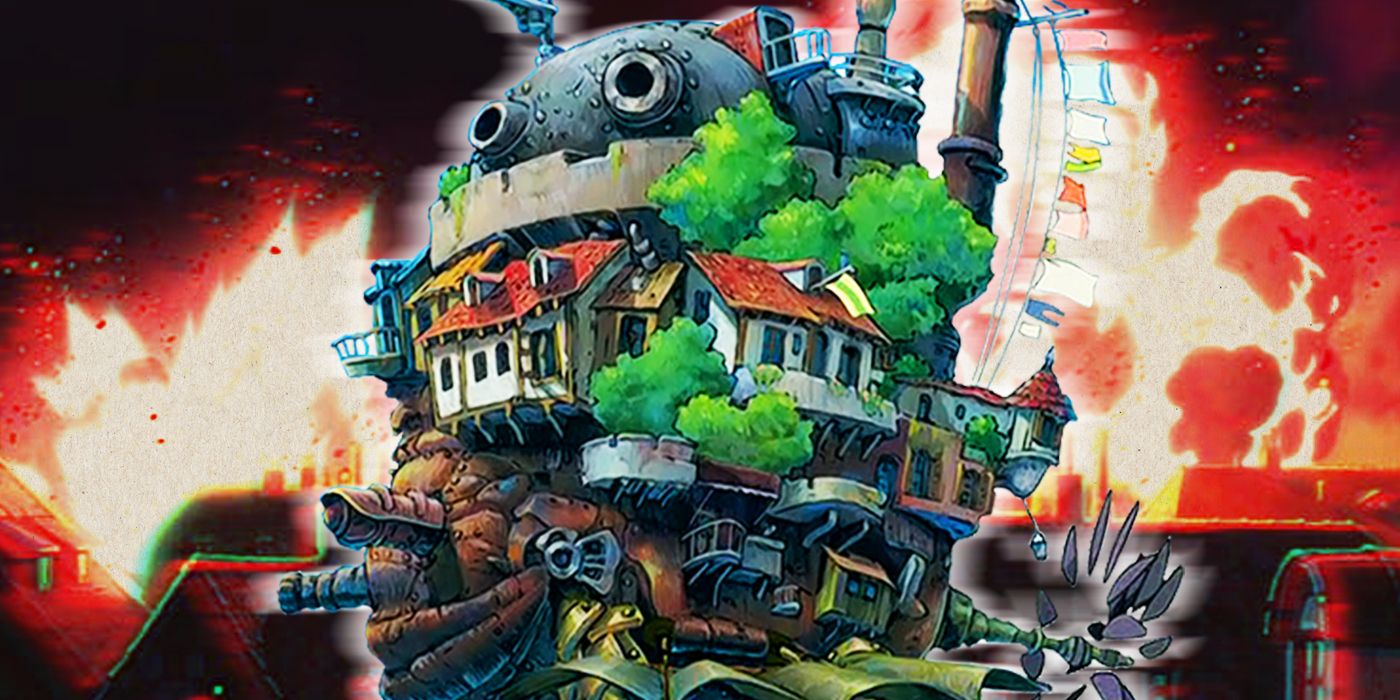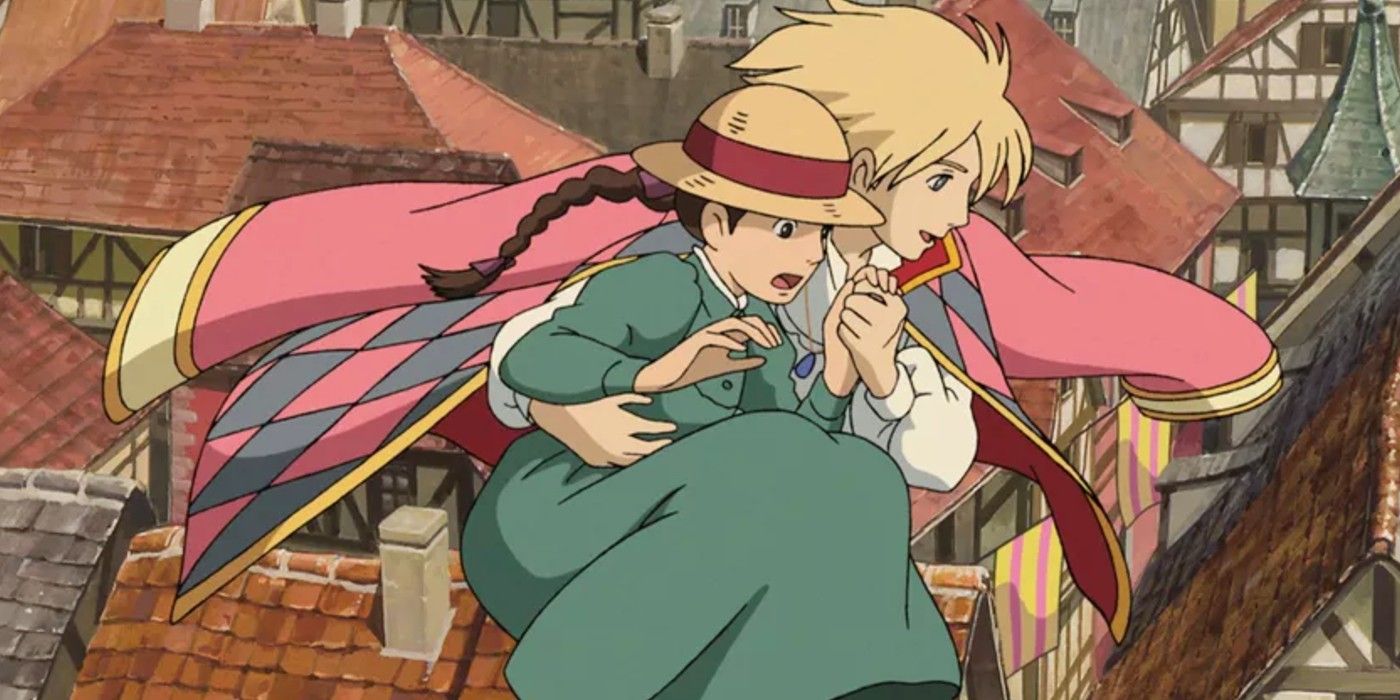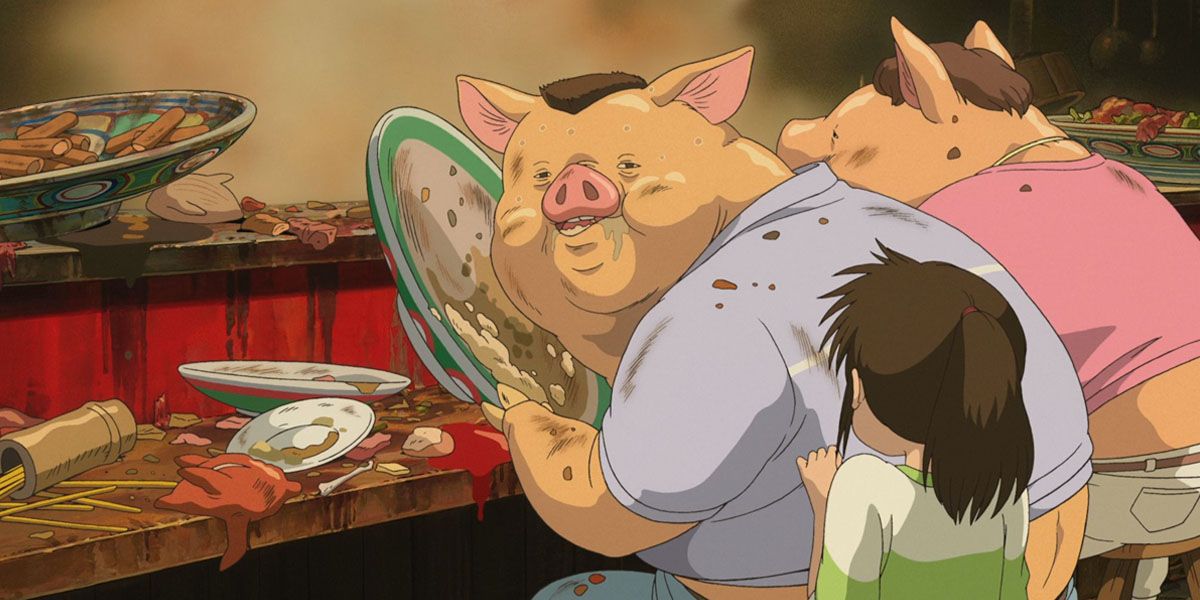All of Hayao Miyazaki's films from Kiki's Delivery Service onward have been blockbuster hits in Japan, but they haven't been anywhere near as successful in American theaters. That's not to say they've been failures stateside, but they've received fairly limited releases and have never grossed over $20 million. This doesn't bother Miyazaki -- he doesn't care what Americans think of his movies, and while he was making Howl's Moving Castle, he was actually trying to reject the American audience.
Miyazaki discussed this topic in a 2006 interview with Hironari Tamura for the Nihon Keizai Shimbun, translated in the book Turning Point: 1997-2008. When Tamura asked Miyazaki about his feelings on anime's increasing global popularity, Miyazaki brushed it off as a niche phenomenon. He went on to state, "I can also say with considerable confidence that any movies I make in the future will never be big hits in the United States. Around the time of the Iraq War, I even made a slightly conscious effort to create a film that wouldn't be very successful in the United States."
This quote almost certainly refers to Howl's Moving Castle, which came out in Japan in November 2004, a little over a year and a half after the US began its invasion of Iraq. Miyazaki significantly changed the plot from Diana Wynne Jones's source novel to include an anti-war message. In addition to its political opposition to the American government's actions, Howl's Moving Castle operates on some of the most abstract dream-like logic of any Miyazaki film, which might have been an intentional resistance to the norms of Hollywood storytelling.
Howl's Moving Castle was Miyazaki's first film after winning the Best Animated Feature Oscar for Spirited Away. Miyazaki and his producer Toshio Suzuki did not attend the awards ceremony in protest of the Iraq War. Keep in mind at this same Oscar ceremony, the audience booed Michael Moore for speaking out against the war in his Best Documentary acceptance speech, so even in supposedly "liberal" Hollywood, anti-war politics did not have mainstream acceptance in America at this time.
If Miyazaki were ever going to have a breakout hit in American theaters, it would have been following Spirited Away. Spirited Away's awards and success on DVD had suddenly given Miyazaki some semblance of mainstream recognition in the US, and the right follow-up could have built from that.
Instead, Howl's Moving Castle went on to gross only $4.7 million in 202 theaters in its initial American release (it would make another $865,647 in a 2019 Fathom Events rerelease). That's less money in more theaters than Spirited Away's pre-Oscar total of $5.4 million in 151 theaters (Spirited Away would nearly double its gross with a wider rerelease post-Oscars).
Some of this can be blamed on Disney's general lack of marketing. Some of it can be blamed on reviews being generally weaker than they were for Spirited Away. But the fact of the matter is that Miyazaki himself did not make Howl's Moving Castle for American audiences, and it seems he intentionally made a film that would not be a hit in the United States.
Hayao Miyazaki's Turning Point: 1997-2008, translated by Beth Carey and Frederick L. Schodt, is available in English from Viz Media.



